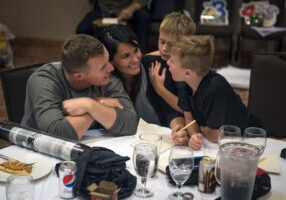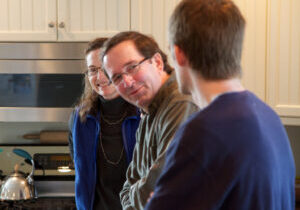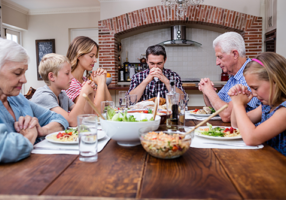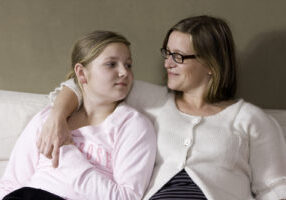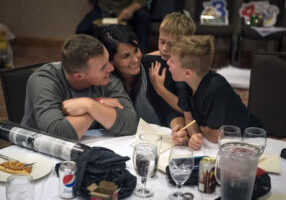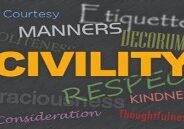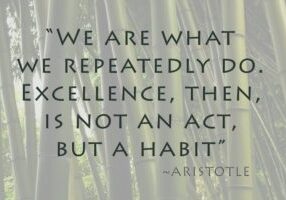Teaching Toward Adulthood
It might be interesting to note that the term ‘teenager’ is a relatively new label for youth between the ages of 13 and 18. Before its creation, children around the age of 13 were called youth or boys and girls. However, somewhere between World War II and the end of the 1960s, the expectations of this age group transformed from a time of responsibility into an extended childhood freed from worry, work and wisdom.
The word teenager first appeared in the Webster dictionary in 1961 as a noun synonymous with the word adolescence. It was used to describe someone who didn’t have to grow up before the age of 18. Teenagers were granted a 5 year pass exempting them from the rights with responsibilities of adulthood. They were cleared to be risk-takers, find and experience all worldly pleasures (whether moral or not) and following their peers.
Contrast the term of teenager to that of youth. Youth are considered persons who have their sights set on becoming adults and accepting mature responsibilities. Youth use their teen years to become dependable, trustworthy and reliable. They are subject to the usual pitfalls of immaturity but they seek out and consider the guidance of parents and adults.
Why is this terminology noteworthy? Simply, what you expect is what you will get. As parents you need to decide which type of person you want to deal with over the next 5 years. Will you view your child as a teenager or as a youth? The way you frame these 5 years will impact the magnitude of the challenges you and your child will face.
The Catholic Church implores you to see your child as a young adult. In doing so, you understand that you are still the primary educator. Children should not find themselves alone during this stage of life. The wisdom of the Church states that parents should “educate their children for life in such a way that each one may fully perform his or her role according to the vocation received from God.” (FC. 53) This implies that parenting is a lifelong task. It does not take a break or vacation during the teen years.
Remember, the future of humanity passes by way of the family. Build a hopeful future with your young adults. Here are some ways to fulfill the tasks of the family taught by Saint Pope John Paul II in Familiaris Consortio.
Form a Community of Persons
 ‘It’s time to become the guide at the side, not the sage on the stage”. This phrase aptly describes the transition parents make during the young adult years. Youth are still expected to follow the right counsel of their parents and participate in family life and parents are still expected to provide guidance and interaction. However, both the youth and the parents needs to be aware that in just a few short years, the youth will be out on his own - away from daily, family contact. This means a shift in basic decision making has to occur. The transition should reflect the young adult’s need to practice sound judgment. Let’s look at the various ways to make the transition smooth.
‘It’s time to become the guide at the side, not the sage on the stage”. This phrase aptly describes the transition parents make during the young adult years. Youth are still expected to follow the right counsel of their parents and participate in family life and parents are still expected to provide guidance and interaction. However, both the youth and the parents needs to be aware that in just a few short years, the youth will be out on his own - away from daily, family contact. This means a shift in basic decision making has to occur. The transition should reflect the young adult’s need to practice sound judgment. Let’s look at the various ways to make the transition smooth.
Serve Life
 Convincing a young adult to reserve sexual activity for marriage is one of the greatest challenges a parent will face. There are many reasons for this. First, many parents themselves did not wait until marriage so they do not think they can expect their children to wait either. Secondly, some parents think that sexual activity before marriage is beneficial – something that can actually help the youth become a better spouse. Finally, some parents think that the pervasive sexual culture is a more powerful influence then they are. Thus, the best they can do is to teach how to engage in sexual activity safely. All of the above ideas are based on flawed morality and logic.
Convincing a young adult to reserve sexual activity for marriage is one of the greatest challenges a parent will face. There are many reasons for this. First, many parents themselves did not wait until marriage so they do not think they can expect their children to wait either. Secondly, some parents think that sexual activity before marriage is beneficial – something that can actually help the youth become a better spouse. Finally, some parents think that the pervasive sexual culture is a more powerful influence then they are. Thus, the best they can do is to teach how to engage in sexual activity safely. All of the above ideas are based on flawed morality and logic.
Develop Society
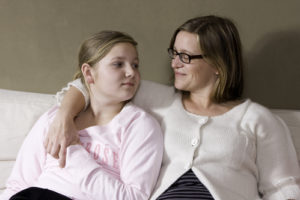 By the time your child is 18, he should have the knowledge and virtue to go into the world and live as Christ lived. This means that parenting during the teen years should focus on readying your youth for participation in the world outside the home. In general, this means checking in with your emerging adult to see if the principles established in the family are neatly packed within his heart. How do you do this? Engage in regular and meaningful conversations with him. Some of these conversations will be light subject manner and some will be deep and thought provoking. Consider the following communication steps when checking on the contents of your child’s heart.
By the time your child is 18, he should have the knowledge and virtue to go into the world and live as Christ lived. This means that parenting during the teen years should focus on readying your youth for participation in the world outside the home. In general, this means checking in with your emerging adult to see if the principles established in the family are neatly packed within his heart. How do you do this? Engage in regular and meaningful conversations with him. Some of these conversations will be light subject manner and some will be deep and thought provoking. Consider the following communication steps when checking on the contents of your child’s heart.
Participate in the Life & Mission of the Church
 The main task at this stage is for the young adult to graduate into an adult faith in which the relationship with Christ really makes a difference in his or her life. As this happens, the young adult also seeks God's vocation for his or her life. One of the worst mistakes we make when dealing with young adults is to create unique expectations for them that we do not hold for adults. We want to see our young people engaged in community service, but we are not engaged in community service as adults. We want to see our youth actively engaged at Mass, but we adults coast through Mass and don't even remember what the homily was about when it is over. We need to remember that young adults look to us adults to see what it means to be an adult in the faith. If we want young adults to be actively engaged in their faith, then we need to actively engaged in ours.
The main task at this stage is for the young adult to graduate into an adult faith in which the relationship with Christ really makes a difference in his or her life. As this happens, the young adult also seeks God's vocation for his or her life. One of the worst mistakes we make when dealing with young adults is to create unique expectations for them that we do not hold for adults. We want to see our young people engaged in community service, but we are not engaged in community service as adults. We want to see our youth actively engaged at Mass, but we adults coast through Mass and don't even remember what the homily was about when it is over. We need to remember that young adults look to us adults to see what it means to be an adult in the faith. If we want young adults to be actively engaged in their faith, then we need to actively engaged in ours.
More Articles
Downloadable Resources
- Is Your Child Mature?
Worksheet that will help you take a reality check of your child’s emotional and social maturity - A Breath of Fresh Air
Five messages on Chastity that will put a smile on your face! - Healthy Relationship Development
Keeping our children safe from those who would abuse them is of primary importance to every parent. This is a list of ten parental actions that have a direct impact on a child’s health and safety. When these actions are consistently demonstrated by parents, their children are more likely to be safe and less likely to be susceptible to the emotional grooming of a predator. - Forming a Catholic Conscience Mark S. Latkovic describes the stages of forming a conscience in our children.















